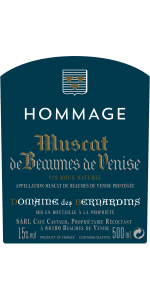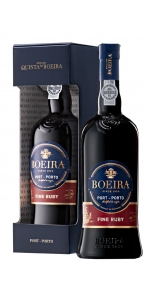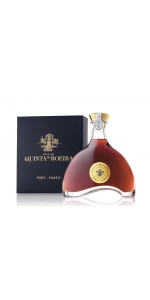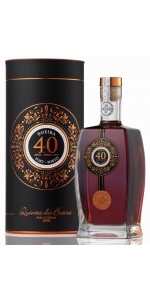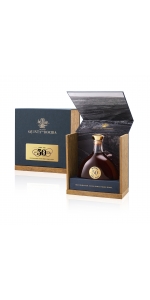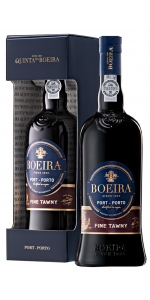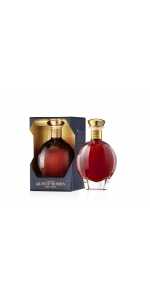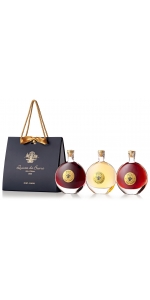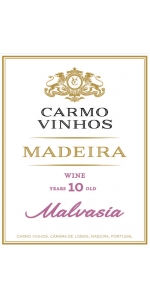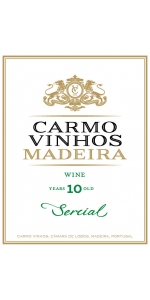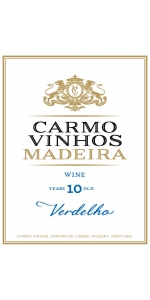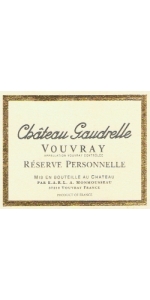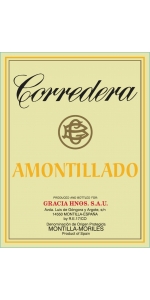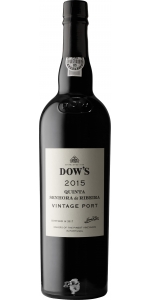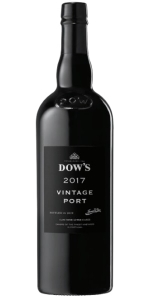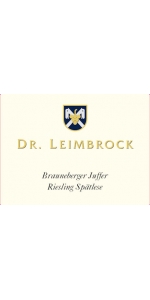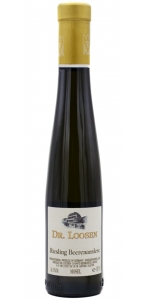Dessert
Bernardins Muscat Beaumes Venise VDN 100% Muscat petits grains (75% Blanc, 25% Red)
Copper/rose hue and ripe soft aromas of orange, spice and flowers. The wine is full bodied with the texture of silk and flavors of orange custard, white peach, pear, apricot, toffee and orange peel.
The vineyards and their terroir are the essence of our wines. This is where everything starts and where we focus our efforts throughout the year. You can’t make great wine without great grapes.
The viticulture is essentially done by hand. Five people work full-time in the vineyards. They are supplemented by seasonal employees who work during bunch thinning and the harvest in order to bring out the very best in our vines. Working by hand and the attention each vine gets are fundamental. Pruning, de-budding, trellising, leaf removal and picking are thus carried out by hand with the utmost care.
We prepare the soil by using good old-fashioned ploughing. Organic compost is made from grape marc (the discarded stalks and skins).
As a way of protecting the plants, we only use phytosanitary products when necessary and within strict guidelines by staggering the treatments appropriately, to minimise the amount of chemicals used. We prefer to use as much as possible manual and organic techniques . Leaving natural grass cover, removing buds and leaves from the vines, preserving biodiversity around the vineyard: olive, almond and cypress trees, wild rosemary and capers.
In the spirit of respecting traditional techniques and the best elements of modern technology, cellar manager Andrew Hall and his winemaker son Romain Hall take family traditions very seriously.
When making our wines, the Muscat de Beaumes de Venise plays a central role and requires great care. After picking the grapes by hand, we press them straightaway to ferment the juice without skins. We don’t add any yeasts and keep the alcoholic fermentation in check by temperature control. Vin Doux Naturel winemaking involves stopping fermentation to preserve the grapes’ natural sweetness. During vinification, we watch the vats day and night and add the fortifying spirit just at the right moment. At this stage, the wine’s final balance is at stake. The wine is then aged in stainless steel tanks for 6 months before bottling.
Bernardins Muscat Beaumes Venise VDN 100% Muscat petits grains (75% Blanc, 25% Red)
Copper/rose hue and ripe soft aromas of orange, spice and flowers. The wine is full bodied with the texture of silk and flavors of orange custard, white peach, pear, apricot, toffee and orange peel.
The vineyards and their terroir are the essence of our wines. This is where everything starts and where we focus our efforts throughout the year. You can’t make great wine without great grapes.
The viticulture is essentially done by hand. Five people work full-time in the vineyards. They are supplemented by seasonal employees who work during bunch thinning and the harvest in order to bring out the very best in our vines. Working by hand and the attention each vine gets are fundamental. Pruning, de-budding, trellising, leaf removal and picking are thus carried out by hand with the utmost care.
We prepare the soil by using good old-fashioned ploughing. Organic compost is made from grape marc (the discarded stalks and skins).
As a way of protecting the plants, we only use phytosanitary products when necessary and within strict guidelines by staggering the treatments appropriately, to minimise the amount of chemicals used. We prefer to use as much as possible manual and organic techniques . Leaving natural grass cover, removing buds and leaves from the vines, preserving biodiversity around the vineyard: olive, almond and cypress trees, wild rosemary and capers.
In the spirit of respecting traditional techniques and the best elements of modern technology, cellar manager Andrew Hall and his winemaker son Romain Hall take family traditions very seriously.
When making our wines, the Muscat de Beaumes de Venise plays a central role and requires great care. After picking the grapes by hand, we press them straightaway to ferment the juice without skins. We don’t add any yeasts and keep the alcoholic fermentation in check by temperature control. Vin Doux Naturel winemaking involves stopping fermentation to preserve the grapes’ natural sweetness. During vinification, we watch the vats day and night and add the fortifying spirit just at the right moment. At this stage, the wine’s final balance is at stake. The wine is then aged in stainless steel tanks for 6 months before bottling.
Review:
"Butterscotch and apricot jam aromas. A lighter vintage of this cuvée, but very fresh and drinkable, and the best Muscat of the vintage by far. 110g/L residual sugar. In conversion to organic. - Matt WALLS"
- Decanter (November 2024), 91 pts
Bernardins Muscat Beaumes Venise VDN 100% Muscat petits grains (75% Blanc, 25% Red)
Copper/rose hue and ripe soft aromas of orange, spice and flowers. The wine is full bodied with the texture of silk and flavors of orange custard, white peach, pear, apricot, toffee and orange peel.
The vineyards and their terroir are the essence of our wines. This is where everything starts and where we focus our efforts throughout the year. You can’t make great wine without great grapes.
The viticulture is essentially done by hand. Five people work full-time in the vineyards. They are supplemented by seasonal employees who work during bunch thinning and the harvest in order to bring out the very best in our vines. Working by hand and the attention each vine gets are fundamental. Pruning, de-budding, trellising, leaf removal and picking are thus carried out by hand with the utmost care.
We prepare the soil by using good old-fashioned ploughing. Organic compost is made from grape marc (the discarded stalks and skins).
As a way of protecting the plants, we only use phytosanitary products when necessary and within strict guidelines by staggering the treatments appropriately, to minimise the amount of chemicals used. We prefer to use as much as possible manual and organic techniques . Leaving natural grass cover, removing buds and leaves from the vines, preserving biodiversity around the vineyard: olive, almond and cypress trees, wild rosemary and capers.
In the spirit of respecting traditional techniques and the best elements of modern technology, cellar manager Andrew Hall and his winemaker son Romain Hall take family traditions very seriously.
When making our wines, the Muscat de Beaumes de Venise plays a central role and requires great care. After picking the grapes by hand, we press them straightaway to ferment the juice without skins. We don’t add any yeasts and keep the alcoholic fermentation in check by temperature control. Vin Doux Naturel winemaking involves stopping fermentation to preserve the grapes’ natural sweetness. During vinification, we watch the vats day and night and add the fortifying spirit just at the right moment. At this stage, the wine’s final balance is at stake. The wine is then aged in stainless steel tanks for 6 months before bottling.
Bernardins Muscat de Beaumes de Venise Hommage is made from 75% Muscat petits grains blancs, 25% Muscat petits grains noirs.
The wine shows a golden hue with orangy highlights. Endearing nose of grape, orange peel and a honeyed accent. Mild at point of entry, spendid aromatic intensity, sultana, candied orange, rose petal and refined spice. Our Muscat de Beaumes de Venise has a great age ability.
For every vintage of our Muscat de Beaumes de Venise, the grapes are picked by hand. We press them straightaway to ferment the juice without skins. We don’t add any yeasts and keep the alcoholic fermentation in check by temperature control. Vin Doux Naturel winemaking involves stopping fermentation to preserve the grapes’ natural sweetness. During vinification, we watch the vats day and night and add 95% grape spirit just at the right moment. At this stage, the wine’s final balance is at stake. For the Hommage, we blend different vintages, aged in stain steel vats, to create the complexity of a long lasting wine.
The Hommage is a versatile companion to many deserts. Most expressive with dry biscuits and dry fruits, it retains all its character served with a fruit tart, puff paestry and chocolate or coffe desserts. To appreciate as well with duck breasts and figs. Served with a roquefort or a silton, it is marvellous. Simply as an aperitif with some dry fruit or grilled almonds. It's also a good compagnion for a classy cigars.
Medium intensity ruby color.
Nose dominated by red fruits.
In the mouth, elegant structure with solid but well integrated tannins. Rich and fruity finish.
RS: 104 g/Liter
TA: 3.8 g/Liter
pH 3.73
Boeira Tawny 20 Year Port is made from 40% Touriga Nacional, 30% Touriga Francesa and 30% Tinta Roriz.
A Good Complexity of Natural Flavors of Cassis, Blackberries and Caramel.
Fermentation in steel tank and stopped by adding spirit and aged in oak barrels for 20 years. Wine was slightly filtered before bottling.
Review:
The NV 20 Year Port is based on Touriga Nacional, Touriga Franca, Tinta Roriz, Tinta Barroca, and Tinto Cão and was aged 20 years in French oak casks. It's more complex and nuanced, with beautiful white raisin, white chocolate, ripe cherries, caramelized fig, and smoky tobacco nuances. Beautifully balanced and medium to full-bodied, it has a layered mouthfeel, a ripe tannic structure, and one heck of a great finish.
-Jeb Dunnuck 94 Points
It has a brownish red color.
Intense and complex, aged for many years in French oak. It has an elegant cigar leaf aroma. Dense and round in the mouth with dried fruit, honey and notes of crystallized fruit. A velvety and persistent finish.
RS: 114g/Liter
TA: 3.7g/Liter
Pairings: Digestive: Dried fruits, caramel sweets and conventual sweets (portuguese pastries).
Boeira Tawny 50 Year Port is produced from Touriga Nacional, Touriga Franca, Tinta Roriz, Tinta Barroca and Tinto Cao.
Brownish color with strong coppery reflections. Toasted almonds and dried fruit stand out on the nose, with a delicate sweetness. Intense flavors on the plate, but a refinement and elegance that reflects its level of ageing. A very long evolving finish.
Boeira 50 Years Old Port is excellent as a digestive.
pH : 3.57TA : 9.48 g/L
RS : 152g/L
Then, it is aged for 50 years in 550 liter French oak barrels.
Traditional Porto winemaking with skin contact maceration and short alcoholic fermentation in stainless steel tanks followed by fortification.
Golden red color.
On the nose, aromas of red fruits with the complexity of dried fruits.
In the mouth, its freshness is combined with a natural sweetness and a slight touch of wood.
RS: 134 g/Liter
TA: 3.3 g/Liter
pH: 3.6
Boeira White Diamond Port is made from Malvasia Fin, Viosinho, Gouveio, and Côdega de Larinho.
Clear amber color, on the nose aromas of citrus, tangerine peel, peaches and honey. In the mouth it is full but elegant, well integrated and persistent finish
Boeira White Diamond Port is the perfect companion for a number of foods including appetizers, lean fish, salads, pasta or desert like apple pie or crème brulée.
Review:
The NV White Diamond Port is the estate's 10-year Tawny based on Málvasia Fina, Viosinho, Gouveio, and Côdega de Larinho. Caramelized orange, toffee, fig, and spicy white chocolate notes all shine on the nose, and this beauty hits the palate with medium to full-bodied richness and a round layered, incredibly seamless mouthfeel. It's all about its seamless, decadent, sweetly fruited, yet balanced style.
-Jeb Dunnuck 94 Points
This gift pack consists of 3 different 100ML bottles :
- one bottle of White Port (100ml)
- one bottle of Tawny Port (100ml)
- one bottle of Ruby Port (100ml)
Perfect impulse buy for the holidays or for a birthday gift !
Carmo Vinhos Madeira Malmsey 10 Yr is richest style of Madeira. With a deep amber color, this intense wine has a complex flavor of walnuts, dried fruits, coffee and caramel. Full body hiding the acidity and a very long finish. An excellent accompaniment to coffee.
Carmo Vinhos Madeira Sercial 10 Yr is the driest style of Madeira, a light bodied wine with a distinctive nutty nose. An excellent apertif. The concentration at this age has produced a very attractive and interesting wine, with a long finish.
Carmo Vinhos Madeira Verdejo 10 Yr an amber medium dry wine with medium body and acidity. Rich aroma and flavor of dried fruits, nuts and caramel, showing a vibrant character, lengthy and well balanced. An excellent aperitif or as an accompaniment to pates.
Chateau Gaudrelle Vouvray Reserve Personelle 2009 is 100 percent Chenin Blanc
Fine Chenin Blanc typicity, with aromas of ripe apples and honeyed notes. Rich, smooth, rounded palate with great structure and weight. Has the acidity to support ageing for 10 years.
Wine produced from grapes coming from the best vineyards from Sierra de Montilla and Moriles Alto (top quality area)
Aged in American Oak for 8 years
Color: Amber color with some topaz reflections.
An intense and elegant expression from the oxidative ageing process, with some dry fruits characters. The aromas are reminiscent of its ancestor - Fino. Velvety, warm, round and well-structured on the palate with almond flavors. A well-balanced wine.
Wonderful as an aperitif and to accompany soups and consommés. Extremely good where its distinctive taste adds unique character to a wide range of dishes. Try also with marinated meats and selfish as aperitif.
Bernardins Muscat Beaumes Venise VDN 100% Muscat petits grains (75% Blanc, 25% Red)
Copper/rose hue and ripe soft aromas of orange, spice and flowers. The wine is full bodied with the texture of silk and flavors of orange custard, white peach, pear, apricot, toffee and orange peel.
The vineyards and their terroir are the essence of our wines. This is where everything starts and where we focus our efforts throughout the year. You can’t make great wine without great grapes.
The viticulture is essentially done by hand. Five people work full-time in the vineyards. They are supplemented by seasonal employees who work during bunch thinning and the harvest in order to bring out the very best in our vines. Working by hand and the attention each vine gets are fundamental. Pruning, de-budding, trellising, leaf removal and picking are thus carried out by hand with the utmost care.
We prepare the soil by using good old-fashioned ploughing. Organic compost is made from grape marc (the discarded stalks and skins).
As a way of protecting the plants, we only use phytosanitary products when necessary and within strict guidelines by staggering the treatments appropriately, to minimise the amount of chemicals used. We prefer to use as much as possible manual and organic techniques . Leaving natural grass cover, removing buds and leaves from the vines, preserving biodiversity around the vineyard: olive, almond and cypress trees, wild rosemary and capers.
In the spirit of respecting traditional techniques and the best elements of modern technology, cellar manager Andrew Hall and his winemaker son Romain Hall take family traditions very seriously.
When making our wines, the Muscat de Beaumes de Venise plays a central role and requires great care. After picking the grapes by hand, we press them straightaway to ferment the juice without skins. We don’t add any yeasts and keep the alcoholic fermentation in check by temperature control. Vin Doux Naturel winemaking involves stopping fermentation to preserve the grapes’ natural sweetness. During vinification, we watch the vats day and night and add the fortifying spirit just at the right moment. At this stage, the wine’s final balance is at stake. The wine is then aged in stainless steel tanks for 6 months before bottling.
Exceptionally aromatic with aromas of violets, hints of blackberry, blackcurrant and black plum on the nose. There is some spice that is balanced with fresh acidity and minerality. A long finish with ripe but firm tannins.
Dow's Senhora da Ribeira can be enjoyed anytime and pairs wonderfully with chocolate desserts and soft cheeses like creamy Stilton or Roquefort.
Review:
Rich and fruity, this wine is packed with intense black-currant flavors. It is perfumed, ripe with a good tannic background. The density of the wine and the firm structure point to a long aging process. Drink this beautifully structured wine from 2026.
-Wine Enthusiast 93 Points
Winemaking:
Senhora da Ribeira has one of the most advanced specialist wineries in the Douro, combining the best of traditional winemaking practice, evolved over centuries, and the latest state-of-the-art automated systems. Three granite ‘lagares’ for foot treading are complemented by three ‘robotic’ lagares, designed by the Symington family and installed in the quinta’s winery in 2001.
It has long been recognised that traditional treading produced some of the finest Ports, but there are some drawbacks involved in traditional treading; temperature control is difficult, there is a limit to how long people are willing to tread and they need to sleep. The winemaker’s options are therefore limited, he or she cannot order treading at different times through the night, or pull people off the picking team at will. Furthermore, emptying the traditional lagar takes a long time; in the meantime the fermentation process is accelerating away. A further handicap arose over recent years, when an increasing scarcity of labour obliged producers to look for less labour-intensive vinification solutions. The Symingtons opted to devise a mechanical means of replicating the proven method of foot treading. The result was the Symington ‘robotic lagar’, an automated treading machine which exactly replicates the gentle action of the human foot and which has revolutionised winemaking in the Douro Valley. This equipment is very expensive but the results have been so good that an increasing proportion of Dow’s finest wines are now made in these automated lagares. Approximately half of the wines for Dow’s much praised 2003 Vintage were vinified in them.
The Senhora da Ribeira’s Quinta Vintage Ports have amassed a highly impressive number of awards: three Gold Medals at the International Wine Challenge, (2008, 2006 and 2001, for the 2005, 2002 and 1999 Vintages, respectively) as well as seven Silver Medals and two Gold Medals at the International Wine & Spirit Competition (London, 2008 for the 2005 Vintage and 2002 for the 1998 Vintage). In September 2006, Jancis Robinson MW wrote, “One very exciting new bottling is Dow’s Quinta da Senhora da Ribeira 2004...this single quinta bottling demonstrates superb quality with wonderful vibrancy. Great wine in any context - not that unlike some California reds! This is definitely a wine to look out for when it is released.”
Wine Profile
The very hot climate through the summer at this vineyard results in highly complex and concentrated wines but very low yields. Colours of the musts in the fermentation tanks are always purple-black due to the very high skin to juice ratio. The old vines add further to the intensity of the wine as they make up a very large percentage of the vineyard. The resulting wine can be described as being the essence of Vintage Port, with powerful wild red-fruit flavours, leading into rich black chocolate notes, the whole balanced by complex, attractive and peppery tannins.
One of the Douro’s most beautiful vineyards, Senhora da Ribeira is located 24km (15 miles) upriver from Quinta do Bomfim in the remote Douro Superior. The vineyard commands a magnificent north bank position, overlooking a broad sweep of the Douro, directly opposite another famous Symington owned vineyard: Quinta do Vesuvio. Senhora de Ribeira was built close to an ancient river crossing, guarded by two 12th century castles on either side of the river built by the Moors during their centuries long occupation of Iberia. A small chapel dedicated to the ‘Lady of the River’ (literally: Senhora da Ribeira) has stood here for centuries and gave the quinta its name. Travellers would pause here to ask for a safe river passage and onward journey.
Senhora da Ribeira’s wines are some of the finest in the Douro and they complement those from Bomfim in the composition of Dow’s classic Vintage Ports. The quinta’s high proportion of old vines (45% are over 25 years old) is of critical importance. The old vines are very low-yielding, producing on average less than 1Kg of grapes each, giving intense and concentrated musts which are ideal for classic Vintage Port. The remainder of the vineyard was replanted as follows: 21% in 2001 and 34% from 2004, the latter involving mainly Touriga Nacional vines. This grape variety - very important for Vintage Port - now represents almost exactly a third of the total planted at the quinta. The entire vineyard has the maximum ‘A’ rating.
As with Bomfim, the consistency of the climate plays a key role, although the rainfall is only half of that experienced at Bomfim: 448mm is the 10 year average. This more extreme climate, hot dry summers and cold, equally dry winters results in wines with unique depth of colour and complexity.
As with Quinta do Bomfim, the best Ports from Senhora de Ribeira are used to make Dow’s Vintage Ports in the great and rare ‘Declared’ years. In the good year’s when Dow’s does not ‘declare’ a Vintage, the best wines of ‘The Lady of the River’ are bottled as Dow’s Quinta de Senhora da Ribeira Vintage Port. They will tend to mature a little earlier than the very rare ‘Declared’ years, but can be every bit as good as some other Vintage Ports.
The 2017 was a very different year to 2016 in terms of the viticultural conditions and it was interesting to watch the progression of the wine and scrutinize its quality as it developed over its first two winters. Whereas 2016 had a very mild winter and exceptionally hot summer, this was compensated by abundant winter and spring rainfall. Conversely, 2017 was warm and drythroughout, although summer temperatures were closer to average, whichproved to be a very significant factor allowing for complete, balancedripening.
It is rare to see such tremendous depth and intensity in color as this winedisplays. The freshness of the floral aromas is very attractive with adominance of rockrose, a flower that grows wild around the hills of Senhorada Ribeira. On the palate, it is exceptionally full-bodied, rich andpowerful with black fruit coming to the fore. Gorgeous, ripe fruit isbalanced by the fine tannin structure. On the finish, it is typically Dow,austere and somewhat drier than many other ports. The intense fruit flavors linger long on the palate.
Dow’s Vintage Ports are only produced in years of exceptional quality and represent only a very small part of the total company’s production in that year. On average only two or three times every ten years are the weather conditions sufficiently good to allow for the making of Dow’s Vintage Port.
Throughout the 19th and 20th centuries, Dow’s Vintage Ports have been landmark wines in virtually every great year, consistently setting the standards amongst all Port houses. Vintage Ports such as the remarkable Dow 1896, the 1927, 1945, 1955, 1963, 1966, 1970, 1980 and the Dow 1994 are all legends in the history of this great wine. These Ports are still magnificent today, even when 50 or over 100 years old. Few wines can claim this quality and this pedigree.
Dow's Vintage Ports are drawn from the companies' finest vineyards; Quinta do Bomfim and Quinta de Senhora da Ribeira. Each property contributes to the Dow’s unique and distinctive style. When young, Dow’s Vintage Ports are purple-black, austere, complex and intensely concentrated, full-bodied and balanced with very fine peppery tannins.
Over the centuries, the Dow winemakers have evolved a style that suits the house’s key vineyards; fermentations are a little longer, resulting in a drier Port Wine that has become the hallmark of Dow’s. Abundant fruit flavours with hints of ripe blackberries, give elegance and poise to Dow’s. The nose is deep and powerful with strong overtones of violets when young, these mature into fine cinnamon and rose-tea aromas with age. The very high percentage of Touriga Franca and Touriga Nacional planted on the vineyards result in the powerful structure and aging potential of Dow’s Vintage Ports
Dow’s Ports avoid an over-rich style and requires a very high degree of skill in wine making and great experience in selecting the finest wines of each year and each vineyard. These wines are aged in seasoned oak casks for some 18 months and are bottled without any filtration or fining whatsoever.
Dow Vintage Ports can be enjoyed when vibrant and young or they can be allowed to age for many years in bottle into a soft and delicate wine of velvet-like elegance.
In the 1920’s, the celebrated Oxford Professor George Saintsbury underlined Dow’s outstanding reputation when he wrote in his famous ‘Notes on a Cellarbook’ (first published in 1920), “There is no shipper’s wine that I have found better than the best of Dow’s 1878 and 1890 especially.”
James Suckling, one of today’s leading authorities on Vintage Port was equally impressed by another legendary wine - the Dow’s 1896 - “The ancient {1896} Port still had an amazing ruby colour with a garnet edge, and it smelled of raisins, black pepper and berries. It was full-bodied, with masses of fruit intertwined with layers of velvety tannins. It was superb.” In 1998, when this wine was 102 years old, he awarded this Port an exceptional 98 points.
Review:
Based on fruit from the predominantly south-facing Quinta do Bomfim in the Cima Corgo and Quinta Senhora da Ribeira in the Douro Superior, with Touriga Nacional and Touriga Franca making up 80% of the blend. This is opaque and closed in but powerfully ripe with underlying pure berry fruit. It's seemingly quite introverted compared to some of its peers at this stage, but it's still full, rich and opulent on the palate. It also shows the latent power of the vintage, made as it is in a slightly drier style (3.4 Baumé), with lovely minty fruit and full, ripe sinewy tannins all the way through the finish. Long and lithe, and very fine.
-Decanter 97 Points
A dense, thickly textured version, dripping with warm salted licorice, tar and açaí paste notes, while plum and blueberry pâte de fruit, chai spice and chocolate elements fill in behind. Lots of brambly grip flows underneath. Shows a very sappy feel on the finish. Best from 2035 through 2055. 5,250 cases made, 1,092 cases imported
-Wine Spectator 96 Points
This is a dry while also floral wine, perfumed and enticing with its juicy acidity. At the same time, the structure is very present, showing power and dark black fruits. The balance is coming together with the rich fruits and tannins melding into one. Drink from 2028. ROGER VOSS
-Wine Enthusiast 96 Points
Deep dark ruby garnet, opaque core, violet reflections, delicate brightening of the edges. Black wildberry jam underlaid with delicate herbs and spices, tobacco nuances, hints of blueberry jam and elderberries, schisty notes. Powerful, full-bodied, sweetness present, carrying tannins, dark nougat in the finish, very good length, an imperious style, built for a long life.
Falstaff 98 Points
A late harvest Riesling with fruity sweetness and great aging potential, aromatic bouquet of honey, melon, ripe fruits. Grapes come from Brauneberger Juffer and Juffer-Sonnenuhr - one of the most prestigious vineyards in the Mosel winegrowing region. The vineyard faces south and provides the best conditions for growing Riesling.
Pairs well with pâté, Asian cuisine.
Dr. Loosen Riesling Eiswein is made from 100 percent Riesling.
This vibrant, racy dessert wine conjures flavors of densely packed pear, apple and guava, with an intense, nervy edge in the aroma. It is luscious, silky and juicy on the palate, with bright acidity giving it a crisp, dynamic finish.
Review:
This is extremely rich, yet the acidity keeps it on its toes. The palate is rich, sporting rhubarb and apricot flavors that are laced by hints of earth, coriander seed and honeyed oolong tea. It has an appealing sweet tart character that takes over and is matched by super suave texture. Shows incredible persistence through the long finish. Drink now through 2050.
-Wine Enthusiast 95 Points
- back
Selected Options
Category
Categories
Pricing
Countries
Regions
Grape Types
Wineries
Organic/Free Shipping
A barrel fermented, old vines Verdejo made in a style different from what we typically see in this white varietal. It has a remarkable complexity, resulting in the smoothness and depth of a high-end white. Very suitable for cellaring.
Golden yellow color with greenish reflections. Complex, toasty aromas of nuts & dried fruit. Large, creamy, spicy, balanced and voluminous.
Rice with fish, cooked seafood, grilled seafood, baked white fish.
"The eponymous 2020 Ossian was produced with Verdejo grapes from old, organically farmed vines around the village of Nieva (Segovia), a zone where phylloxera didn't reach. They consider 2020 their finest vintage to date, with a big change from 2018 and when they have achieved a much better understanding of their vineyards. It has notes of pit fruit and sweet spices, with good weight on the palate, moderate alcohol (13.5%) and ripeness and good freshness and balance. It's serious and with potential to develop in bottle. 80,000 bottles produced. - Luis GUTIERREZ"
- Robert Parker's Wine Advocate (January 31st 2023), 94 pts
Far Niente Napa Valley Cabernet Sauvignon is made from 92.6% Cabernet Sauvignon, 7.4% Petit Verdot
The 2023 Far Niente Napa Valley Cabernet Sauvignon opens with vibrant aromas of black cherry, black currant, and dark plum, layered with notes of rose petal, caramel, and toasted oak. On the palate, the wine is coating and expansive, unfolding in waves of ripe blackberry, spiced cherry, and cassis. Fine-grained tannins and juicy acidity create balance and lift, while hints of bay leaf, cocoa, and sweet oak weave through the long, supple finish of juicy, spiced cherry.

-150x300.jpg)
-150x300.jpg)
